Salisbury train crash: Driver 'not prepared' for line conditions
- Published
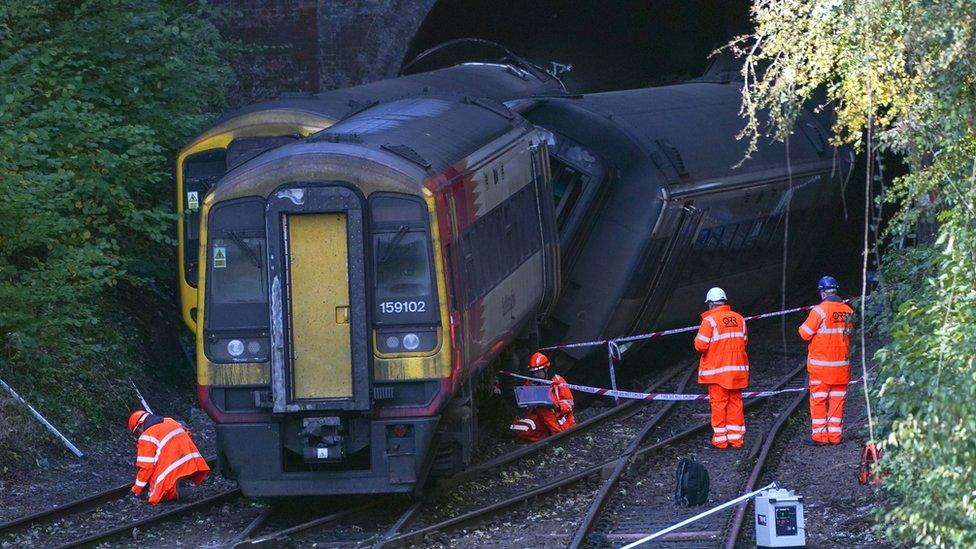
Two trains collided east of Salisbury Station in 2021
A driver involved in a train crash which injured 14 people had not been warned to brake earlier to allow for leaves on the line, a report has found.
The South Western Railway (SWR) train collided with a Great Western Railway (GWR) service at Fisherton Tunnel, Wiltshire, in October 2021.
A Rail Accident Investigation Branch (RAIB) report found not enough had been done to warn drivers of hazards in the area.
SWR said it had reviewed training.
Network Rail said it had introduced new technology including high-definition cameras and drones to help combat conditions caused by autumn leaf fall.
There were 200 passengers on the two trains and each train had a driver and guard on board.
The 17:20 SWR from London Waterloo to Honiton collided with the side of the 17:08 GWR from Portsmouth Harbour to Bristol Temple Meads as both trains headed into Salisbury.
One driver sustained serious injuries and 13 passengers were treated in hospital.
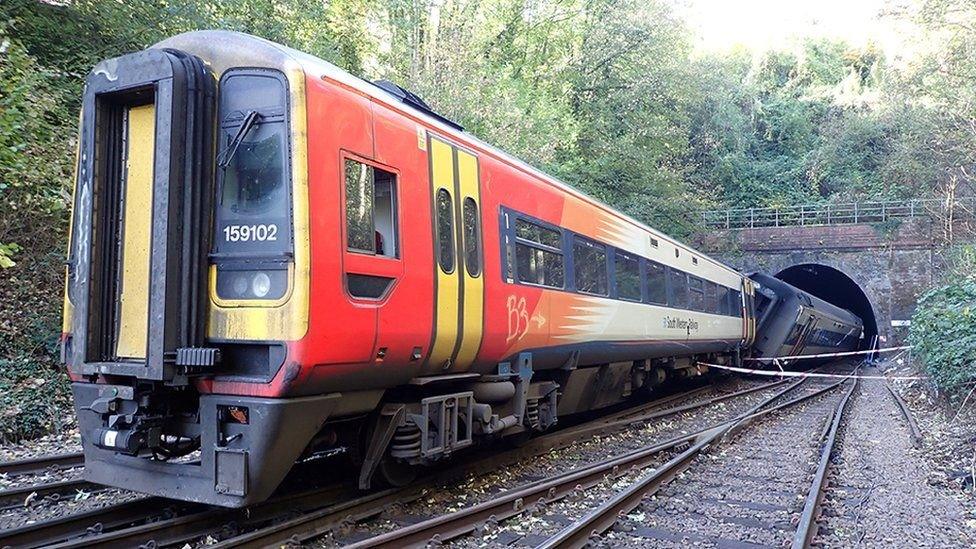
Fourteen people were injured in the collision
The RAIB investigation found a probable underlying factor was that Network Rail did not effectively manage risks associated with leaves coming down in autumn on the Wessex route.
Network Rail and SWR told inspectors they had since updated their autumn working arrangements to ensure sites at high risk of low adhesion were identified and managed.
The SWR train ran 220 metres (720 ft) past a red stop signal, due to the driver not braking early enough, before striking the GWR service, the report found.
The impact of the collision caused the front two carriages of the SWR train and the rear two carriages of the GWR to derail.
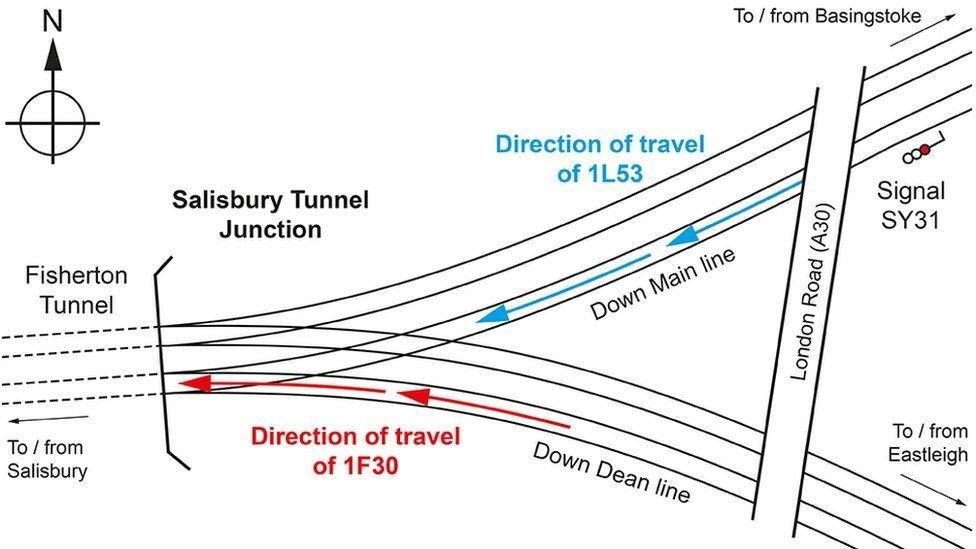
The South Western Railway service (1L53) ran through a red signal before hitting the other train
Both trains continued some distance into Fisherton Tunnel before they came to a stop.
A potentially far more serious collision between the SWR train and an earlier train travelling in the opposite direction was avoided by less than a minute, the report said.
One passenger previouslytold the BBC that she ended up under a tableafter the "massive impact", while another recalled how possessions were "thrown around" and "a few people hit their heads".
RAIB lead investigator Ian Capewell said: "This was an extremely serious accident involving two trains colliding at speed.
"This is the first accident we have dealt with of this nature in more than 20 years and we have made a number of recommendations to make sure it does not happen again."
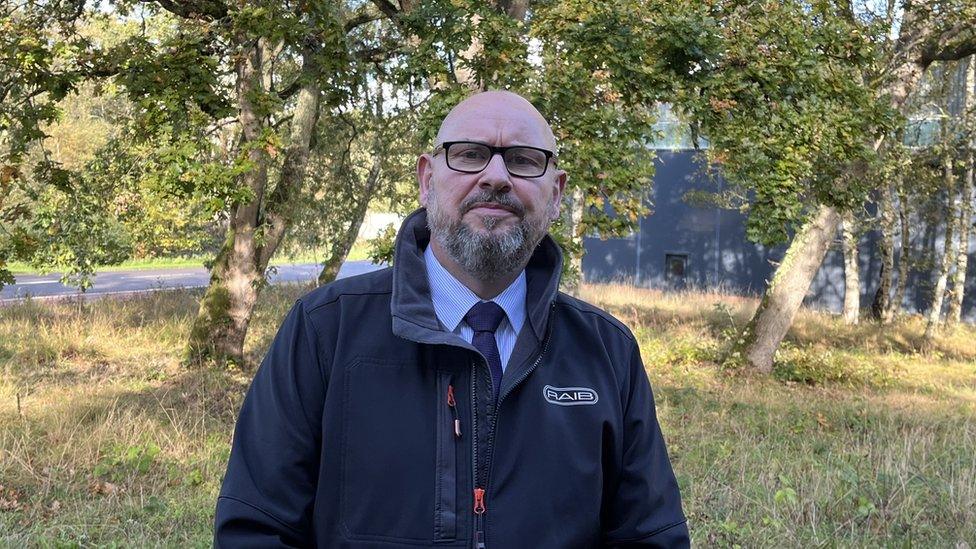
Mr Capwell said the investigation took more than two years
The crash caused significant damage to the trains, line, tunnel and signalling equipment and the line was closed until 15 November 2021.
The SWR driver Robin Tandy was seriously injured.
Weather conditions were poor on the day of the crash, there were strong winds and heavy rain.
The level of wheel and rail adhesion was very low due to leaf contamination on the track, and this was made worse by a band of rain that occurred immediately before the crash, inspectors said.
These factors were compounded by an increased density of vegetation in the area which had not been effectively managed by Network Rail's Wessex route, the report added.
SWR managing director Claire Mann said: "Our commitment to the safety of our customers and colleagues is our number one priority.
"The incident was a stark reminder of the challenges autumn poses to the railway and we continue to work closely with Network Rail and the wider industry to learn the lessons, continuously improve and reduce the risk of it happening again."
Mark Killick, Network Rail Wessex route director, said: "The incident at Salisbury nearly two years ago will live long in our memory and our thoughts remain with those customers and colleagues involved in this accident.
"We welcome the RAIB report and accept its recommendations.
"We have been working closely with RAIB over the past two years to implement a number of responses following the initial findings and our own internal investigation, to make improvements in the way we manage the risk of poor rail adhesion during autumn.
"Ahead of last autumn, we utilised train mounted high-definition cameras to complement the efforts of our fleet of specialist autumn leaf busting trains, and this year are also testing the use of drones to enhance our rail head leaf fall inspections."

Follow BBC West on Facebook, external, X, external and Instagram, external. Send your story ideas to: bristol@bbc.co.uk , external
- Published2 November 2021
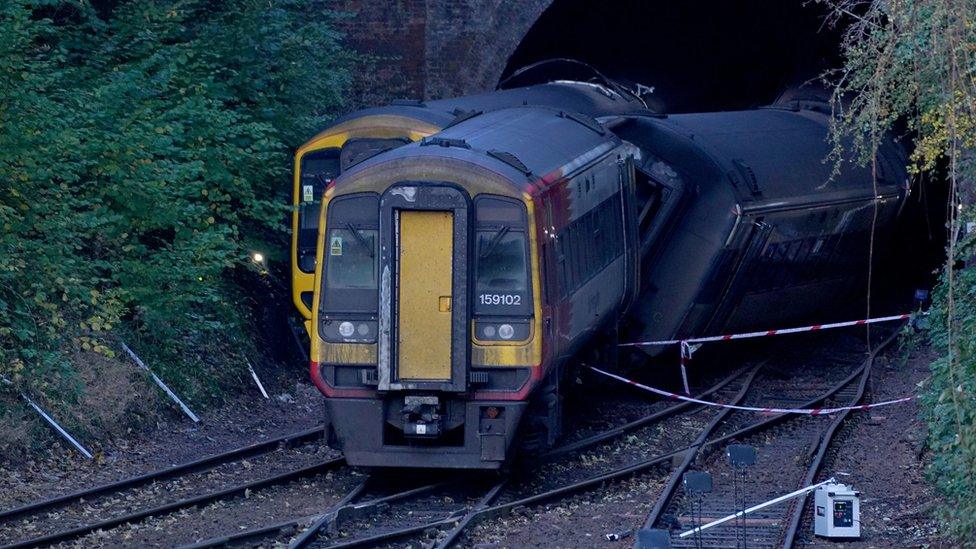
- Published21 February 2022

- Published31 October 2022

- Published31 October 2021
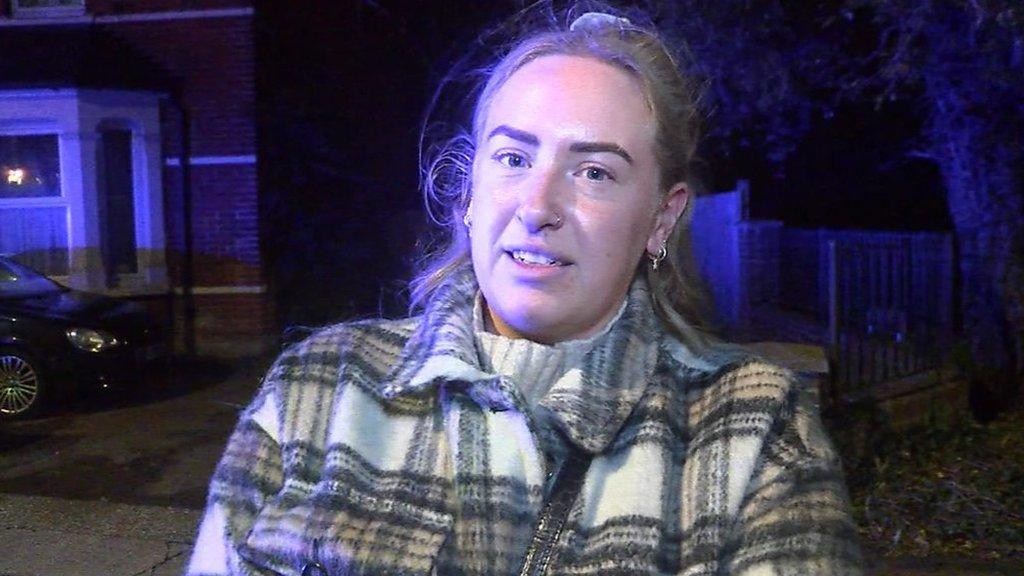
- Published1 November 2021
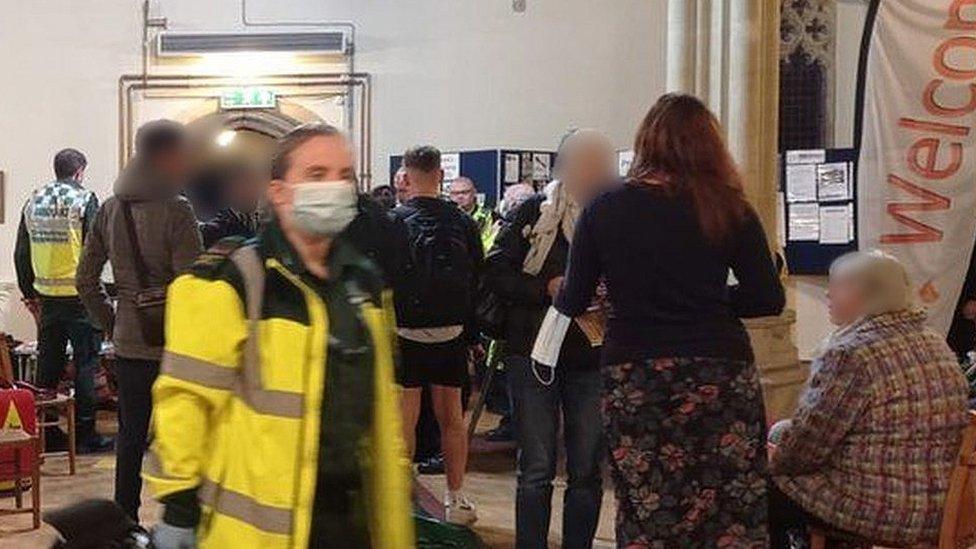
- Published3 November 2021
